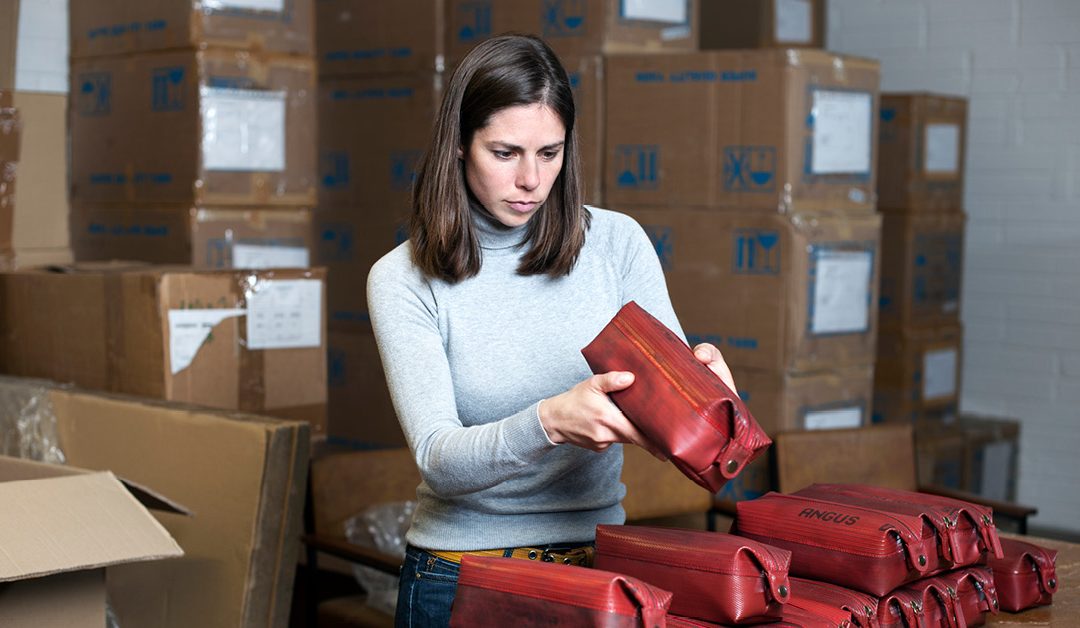By Hanna Kim, Gustavson External Relations co-op student
“Just because it can’t be a firehose, doesn’t mean it can’t be something else,” stated Kresse Wesling, a co-founder of Elvis & Kresse, a company that transforms industrial waste into new products such as belts, purses and even rugs. Kresse, a multi-award winning environmental entrepreneur and Young Global Leader, spoke at the Gustavson 2019 Workplace Skills Conference to share her incredible start-up experience and advice with BCom students.
Kresse began her speech by emphasizing the “use of the amazing gift of time.” In 2004, she sold her first company, which provided her just enough money and time to ponder and be curious for a year. She used this time to “look around and find the problem I can base the business on.” Wanting to do something about waste in the environment, she spent her days in the British Library researching industry reports. Upon discovering that in 2004, the United Kingdom put 100 million tons of waste in the landfill, Kresse visited all the landfill sites to see the reality with her own eyes. For several days in a row, she sat by the landfill and made notes about the types of materials that came in. She realized that about 30 per cent of them were industrial waste, and she soon fell in love with the beauty of the materials that were being discarded. In an attempt to find these materials right at source, she decided to go back to where the material originally came from. “I call it my salmon-phase, following the waste back to its origin,” said Kresse playfully.
Kresse discovered that discarded firehoses were coming from the London Fire Brigade. After meeting with the London Fire Brigade in 2005, she launched Elvis & Kresse, to turn the firehose into a brand new product. The challenge was, firehoses couldn’t be shredded, or melted. She had to find a way to cherish it as it was while transforming it into something from its natural state. After various ideas, Kresse eventually decided to make belts out of firehoses. With capital investments of a mere 40 pounds ($84 CAD), by the end of the first year, Elvis & Kresse generated 134 pounds ($281 CAD), and she donated 100% of her first year profits to the Fire Fighters Charity.
“Our company can be described in three steps,” said Kresse. “One, rescue materials. Two, transform materials into products. Three, give 50% of profits away to charities related to waste.” Kresse also attributes the success of her business to the power of giving. In 2009, American Vogue included a shot of Elvis & Kresse’s firehose belt which allowed the business to widely spread its name as a luxurious, environmentally conscious brand. “The reason we got this image in Vogue is that we were known for giving.”
Before ending her inspiring speech, Kresse gave three main pieces of advice to students. First, keep environmental and moral value in mind when starting a business. Second, do more, be better. Always strive to improve. Lastly, build things that last, not things that will be used up quickly. In Kresse’s own words, “think about whether or not the business you start will make the world better for other people’s grandchildren.”


